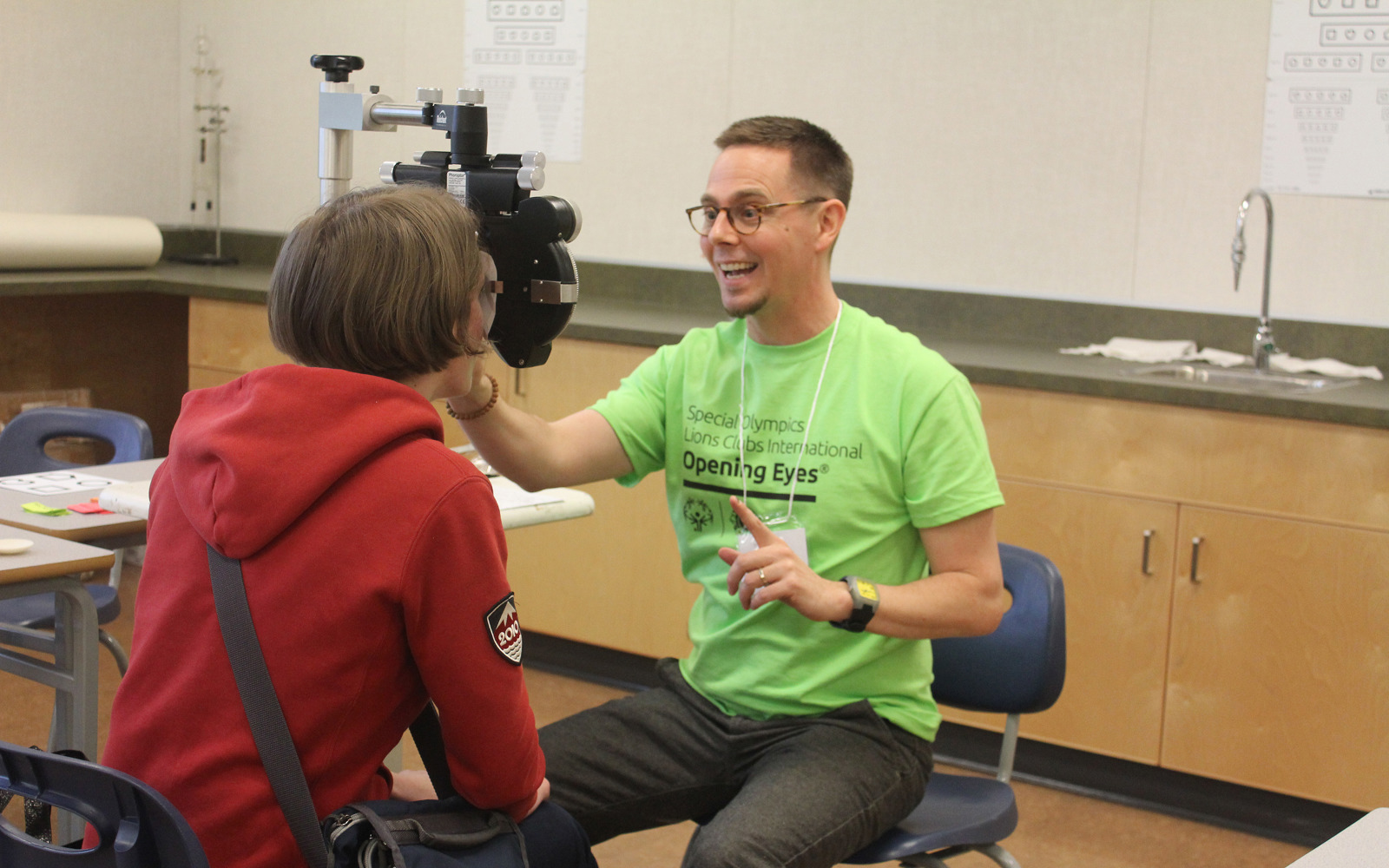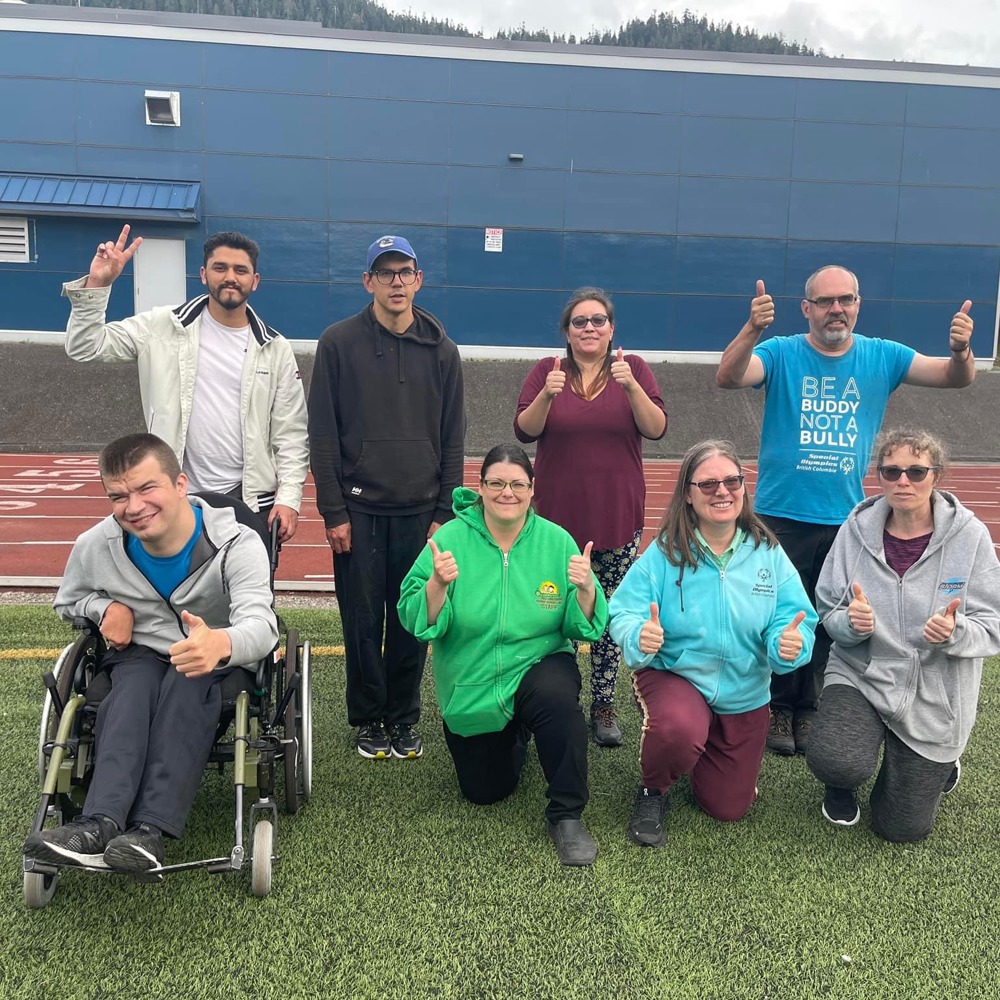Inclusive Health

Current Opportunities
- Access athlete inclusive health resources
- Get involved with Club Fit in your community
- Let SOBC know if an athlete in your community is interested in Health Messenger advocacy training
- Support the development of the Inclusive Health Care Provider List
- Volunteer with Healthy Athletes
- Share health tips and encouragement in the SOBC Wellness Challenges Facebook Group
- Join the Champions for Inclusive Health movement: Sign up for the newsletter and review the research on the health inequality faced by people with intellectual disabilities in B.C.
The Need
People with intellectual disabilities experience worse health care and access to services than others in their communities. Globally, millions of people with intellectual disabilities lack access to quality health care and experience dramatically higher rates of preventable disease, chronic pain and suffering, and premature death in every country around the world. In developing and developed countries alike, people with intellectual disabilities are consistently one of the most marginalized population subsets – a status that comes with horrific health outcomes, such as:
- Higher rates of premature death: A 2013 United Kingdom study found that people with intellectual disabilities were more than twice as likely to die before the age of 50 than the general population. A 2015 review of what is currently known about mortality among Canadians with intellectual and developmental disabilities showed the overall mortality was more than five times higher in people with intellectual and developmental disabilities compared to people the same age, sex, and residence. The majority of these deaths in the general population were due to lifestyle factors. In contrast, premature deaths of individuals with intellectual disabilities were primarily due to delays or problems investigating, diagnosing, and treating illnesses, and with receiving appropriate care.
- Higher rates of obesity: In 2013, the global adult obesity rate was 33.9 per cent for adults with intellectual disabilities examined by Special Olympics, compared to 12 per cent of the general population.
Through the international findings, we can infer that British Columbians with intellectual disabilities likely have lower life expectancies, live more sedentary lifestyles, and are hospitalized more frequently than the general population.
A person with a disability is not an inherently unhealthy person. Health status is affected by genetics, social circumstances, environment, individual behavior, and health care access. Special Olympics is addressing the range of barriers that affect the health of individuals with intellectual disabilities, which include lack of access, education, and resources.
Many individuals with intellectual disabilities have trouble realizing or expressing their health concerns, and many health professionals have not had the opportunity to receive specific training, or are not familiar enough with this population, to know the best questions to ask to draw out the issues.
Special Olympics is changing the game for athlete health. Our ultimate goal is to create a world where people with and without intellectual disabilities have the same opportunity to be healthy.

The Vision
The vision of the Special Olympics Inclusive Health program is to create a world where people with intellectual disabilities have the same opportunities and access to health care as people without intellectual disabilities, and in doing so, allow Special Olympics athletes to perform their best on and off the playing field.
Special Olympics is working to create a tipping point where health becomes inclusive for people with intellectual disabilities globally by changing curriculum, training health care professionals and policymakers, influencing policy, advocating for inclusive health programming, building partnerships for followup care, and harnessing the power of the Special Olympics movement to build awareness.
Internationally, Special Olympics has become the largest public health organization for people with intellectual disabilities.
It is our belief that B.C. has the resources and expertise necessary to become a national and global leader in the field of health services for individuals with intellectual disabilities.

The Action
To address the health disparities our athletes face, Special Olympics is leading a number of integrated and complementary efforts to strengthen the capacity of existing systems of care. Special Olympics Inclusive Health is integrated into all Special Olympics sports, family, and youth programs, and also strengthens linkages with community care networks and other local partners who can support the health and wellbeing of Special Olympics athletes year-round.
The goal of the Special Olympics Inclusive Health program is to ensure inclusive health for people with intellectual disabilities, meaning equitable access to quality health care, education, and services throughout communities.

Healthy Athletes Screenings
The Special Olympics Healthy Athletes program provides free, fun health screenings and education for people with intellectual disabilities. Through Healthy Athletes, health care professionals receive training about the specific health care concerns of people with intellectual disabilities and how to ask the right questions, helping them draw out issues.

Special Olympics British Columbia’s health offerings include Healthy Athletes screenings and year-round health support including:
- Club fit programs
- Fit Families and Friends programs
- Special Olympics Health messenger training to empower athletes to be health and nutrition advocates
- Family Health Forums
- Coach Development Workshops
- Functional Testing
- Inclusive health, fitness, and nutrition resources on the SOBC website
SOBC Locals play a critical part in this work by offering Club Fit programs, promoting inclusive health events and resources, and encouraging healthy living year-round.
Special Olympics BC also worked with the Champions for Inclusive Health Stakeholder Coalition to research and reduce the health disparities between people with intellectual disabilities and the general population.
The Supporters
Globally, Special Olympics Inclusive Health is made possible by the vision and support of the Golisano Foundation, and partners such as the U.S. Centers for Disease Control and Prevention, and Lions Clubs International.
Here in B.C., Special Olympics BC’s inclusive health work is made possible by the ongoing support of our provincial partners and fundraising events, including the leading role of the Government of British Columbia and the Government of Canada.
The Testimonials
Get involved and make a difference by emailing health@specialolympics.bc.ca
